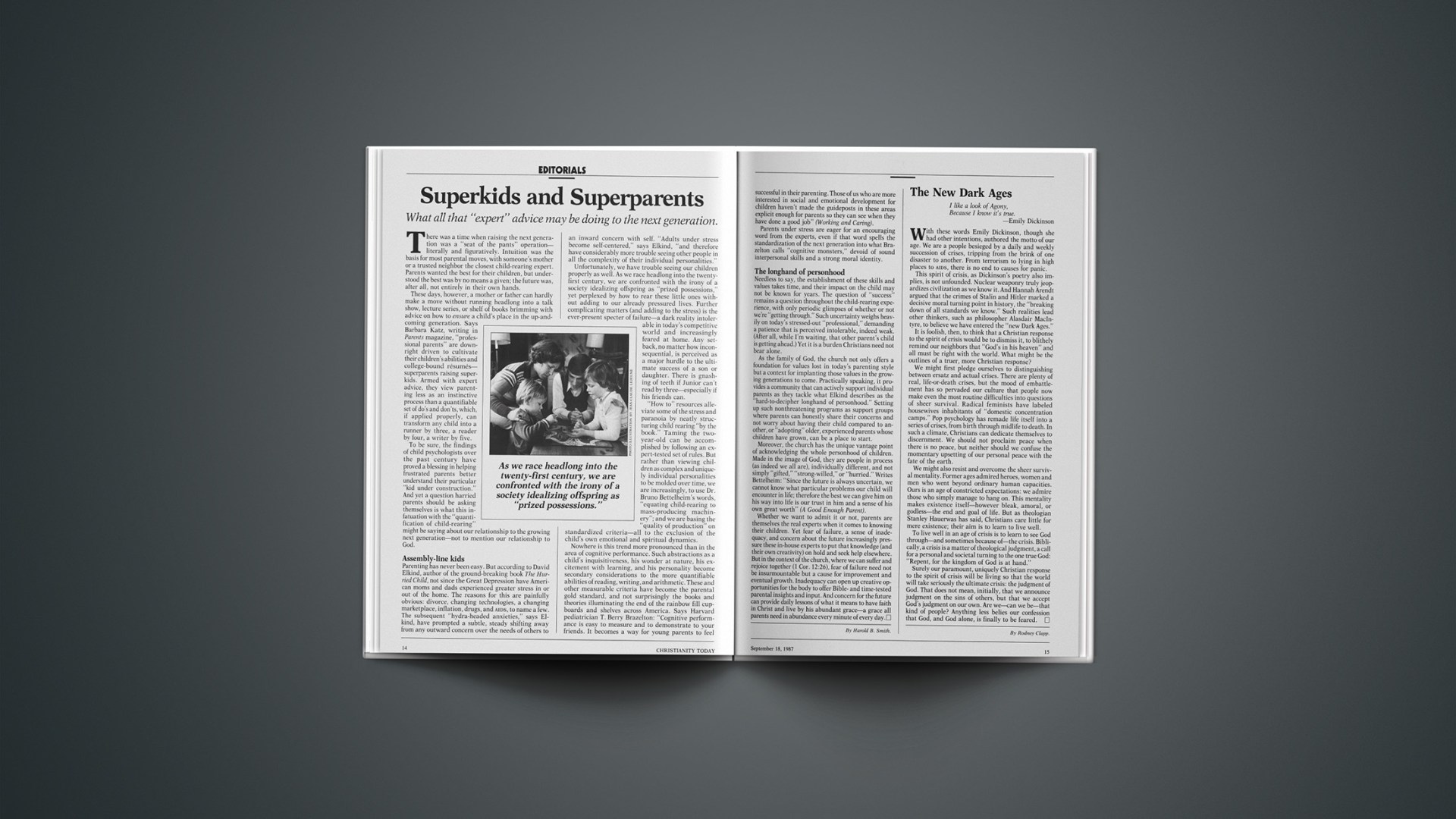I like a look of Agony,
Because I know it’s true.
—Emily Dickinson
With these words Emily Dickinson, though she had other intentions, authored the motto of our age. We are a people besieged by a daily and weekly succession of crises, tripping from the brink of one disaster to another. From terrorism to lying in high places to AIDS, there is no end to causes for panic.
This spirit of crisis, as Dickinson’s poetry also implies, is not unfounded. Nuclear weaponry truly jeopardizes civilization as we know it. And Hannah Arendt argued that the crimes of Stalin and Hitler marked a decisive moral turning point in history, the “breaking down of all standards we know.” Such realities lead other thinkers, such as philosopher Alasdair MacIntyre, to believe we have entered the “new Dark Ages.”
It is foolish, then, to think that a Christian response to the spirit of crisis would be to dismiss it, to blithely remind our neighbors that “God’s in his heaven” and all must be right with the world. What might be the outlines of a truer, more Christian response?
We might first pledge ourselves to distinguishing between ersatz and actual crises. There are plenty of real, life-or-death crises, but the mood of embattlement has so pervaded our culture that people now make even the most routine difficulties into questions of sheer survival. Radical feminists have labeled housewives inhabitants of “domestic concentration camps.” Pop psychology has remade life itself into a series of crises, from birth through midlife to death. In such a climate, Christians can dedicate themselves to discernment. We should not proclaim peace when there is no peace, but neither should we confuse the momentary upsetting of our personal peace with the fate of the earth.
We might also resist and overcome the sheer survival mentality. Former ages admired heroes, women and men who went beyond ordinary human capacities. Ours is an age of constricted expectations: we admire those who simply manage to hang on. This mentality makes existence itself—however bleak, amoral, or godless—the end and goal of life. But as theologian Stanley Hauerwas has said, Christians care little for mere existence; their aim is to learn to live well.
To live well in an age of crisis is to learn to see God through—and sometimes because of—the crisis. Biblically, a crisis is a matter of theological judgment, a call for a personal and societal turning to the one true God: “Repent, for the kingdom of God is at hand.”
Surely our paramount, uniquely Christian response to the spirit of crisis will be living so that the world will take seriously the ultimate crisis: the judgment of God. That does not mean, initially, that we announce judgment on the sins of others, but that we accept God’s judgment on our own. Are we—can we be—that kind of people? Anything less belies our confession that God, and God alone, is finally to be feared.
By Rodney Clapp.










